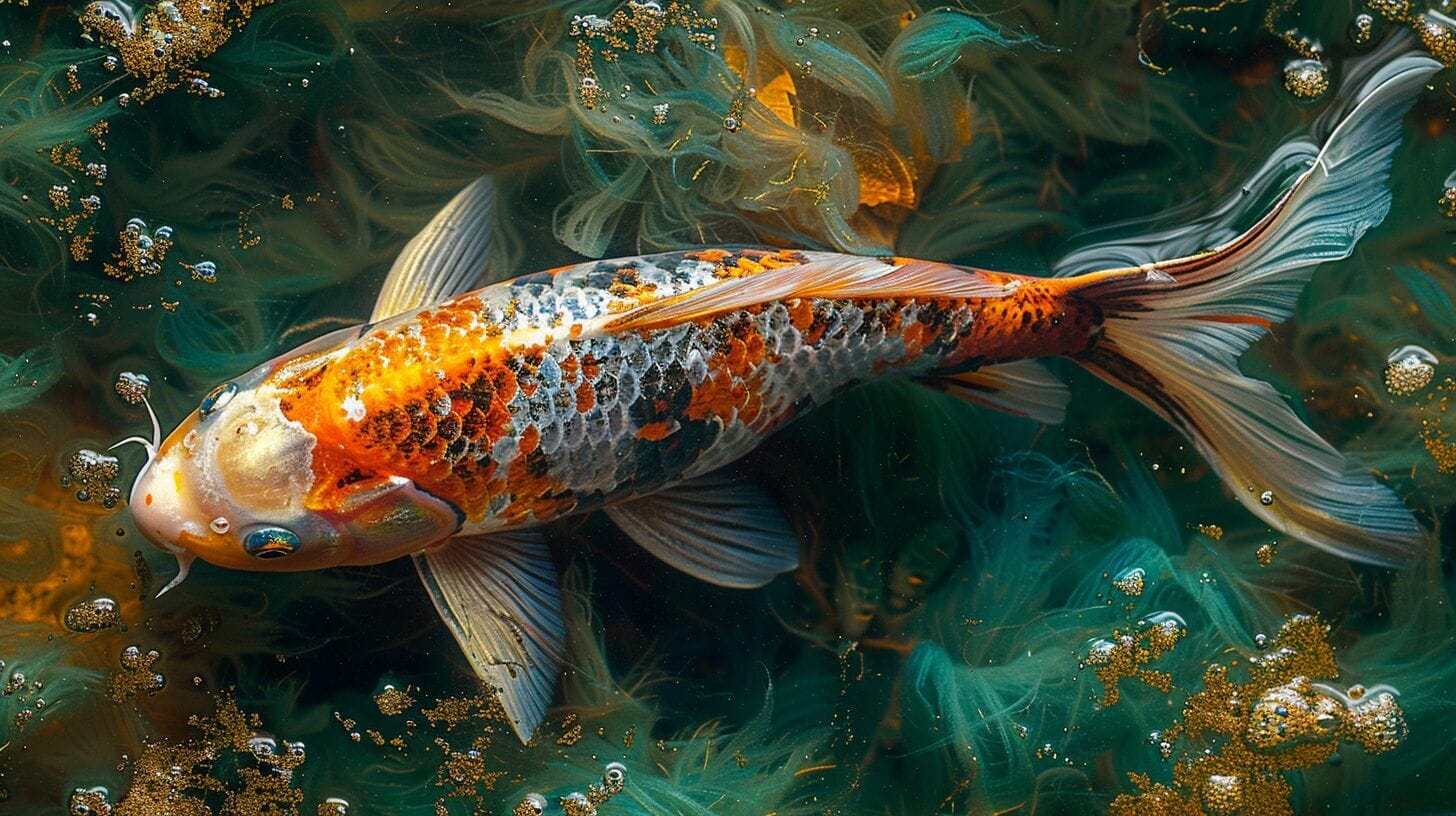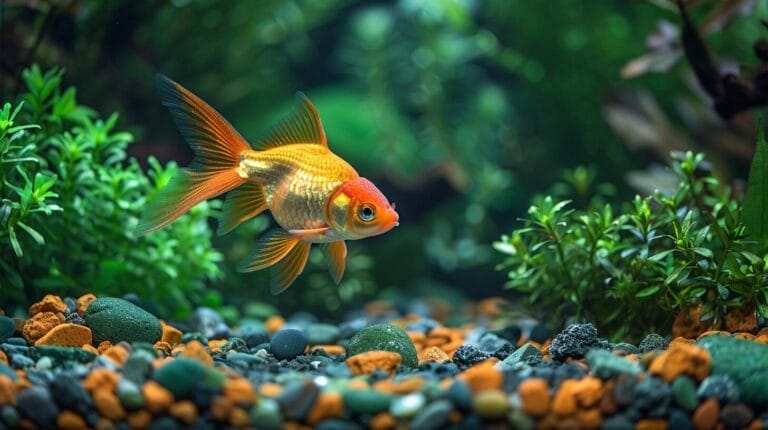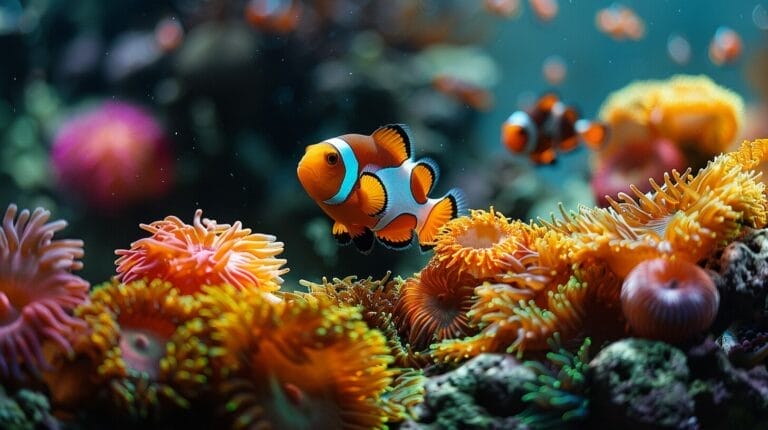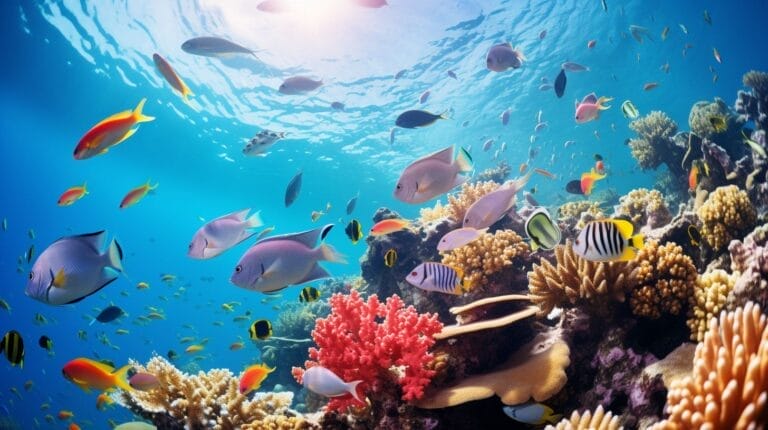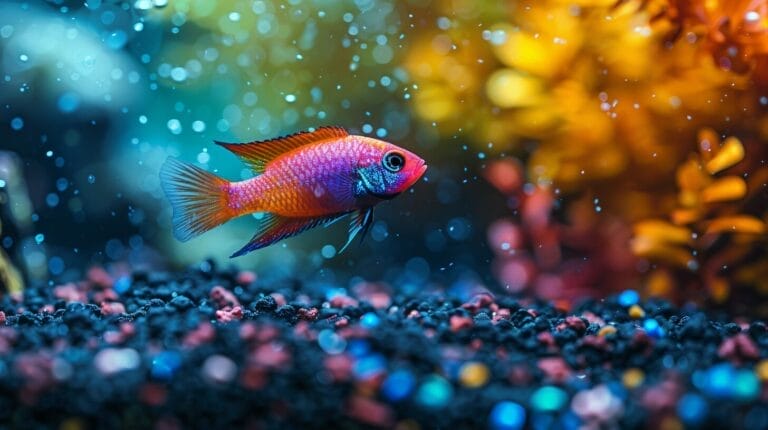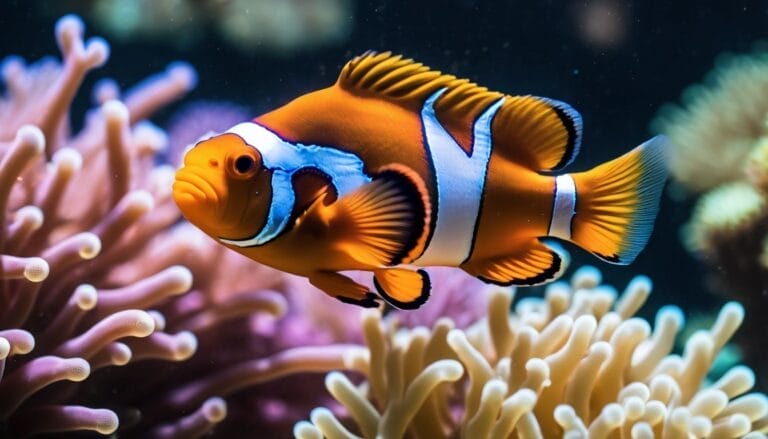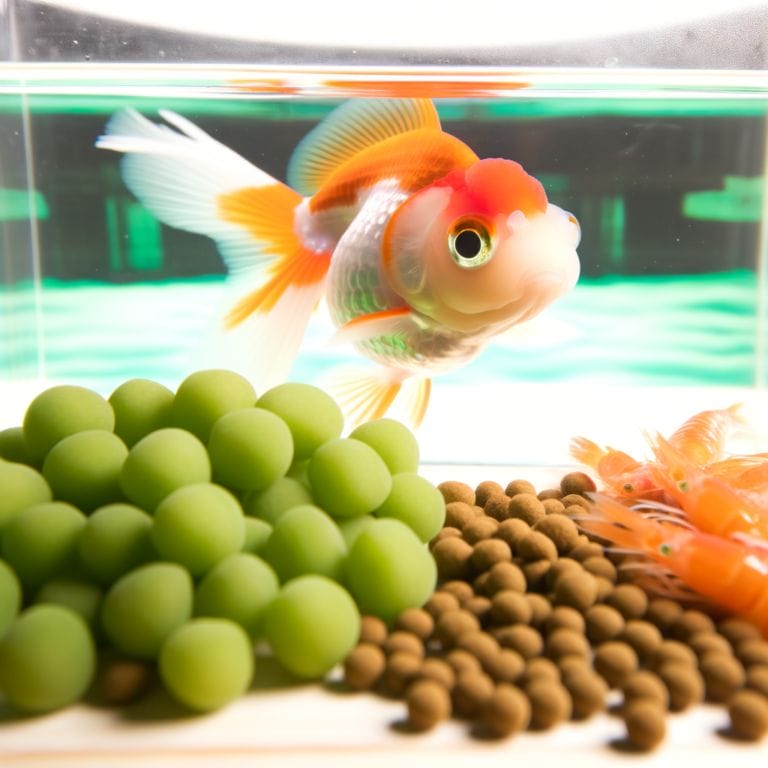Do Koi Eat Algae? Understanding Their Diet
As enthusiasts of Koi fish, we often ponder the question – do these elegant creatures truly feast on algae? The answer lies in the intricate balance of their dietary habits. While algae serve as a crucial component of their nutrition, there’s more to this aquatic delicacy than meets the eye.
so, do Koi eat algae? Stay tuned as we unravel the mysteries of Koi fish dining preferences and the significance of algae within their diet.
Key Takeaways
- Koi fish graze on algae as a significant part of their diet for essential nutrients.
- Algae contributes to Koi fish growth, vitality, and overall health.
- Algae helps maintain water quality in Koi ponds by absorbing excess nutrients.
- A balanced diet of algae and commercial fish food promotes optimal health.
- Monitoring feeding patterns prevents overfeeding, ensuring Koi fish thrive.
Understanding Koi Fish and Their Natural Diet
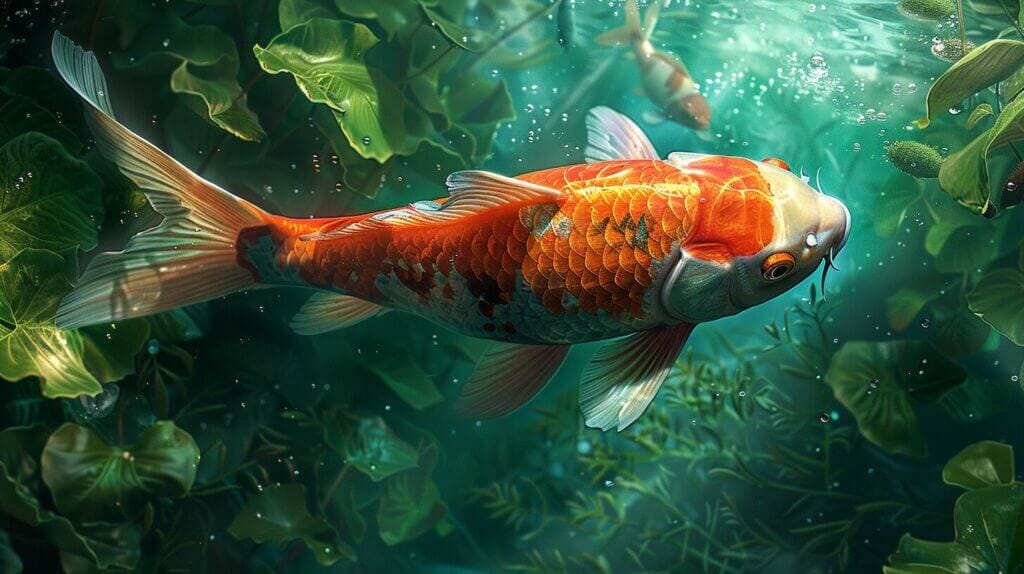
Exploring the world of Koi fish, we find their natural diet influences their vibrant colors and health. Koi consume a variety of foods in the wild, including insects, plants, and algae. They’re known as algae eaters, helping to keep their environment clean and balanced.
In larger ponds, Koi have more natural food sources, such as algae and insects. This environment allows them to exhibit their essential feeding behaviors. Understanding the natural diet of Koi is vital for maintaining their health and promoting their beautiful colors. They thrive when they have access to a diverse diet that mimics their wild consumption.
By providing a diet that includes natural sources, Koi fish can live long, healthy lives in captivity.
The Role of Algae in the Koi Fish Diet
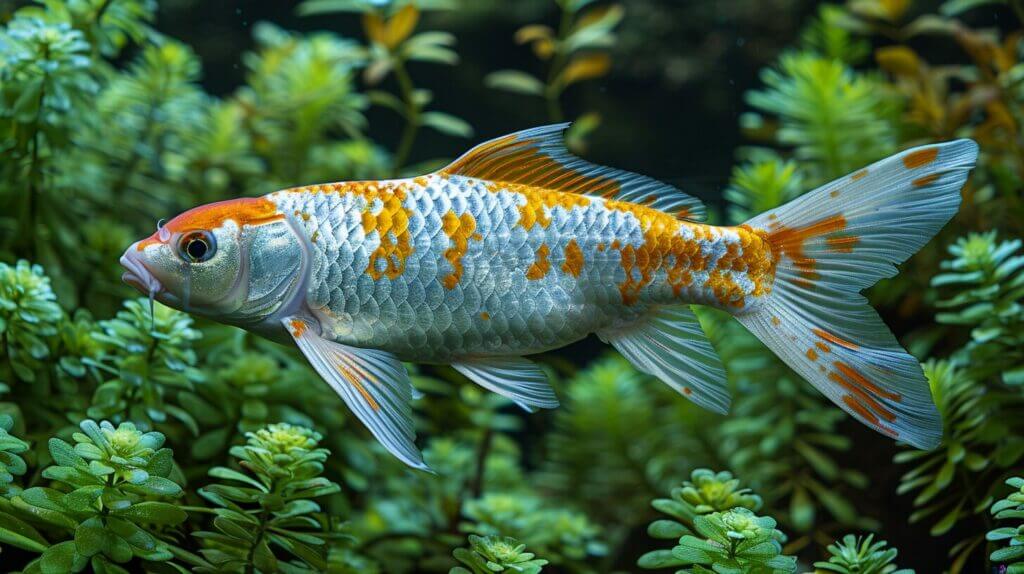
Algae plays an essential role in the diet of Koi fish. These aquatic plants are rich in nutrients like proteins, vitamins, and minerals, contributing to the growth and vitality of Koi fish.
Algae also play a part in the ecosystem within Koi ponds. They maintain water quality by absorbing excess nutrients and producing oxygen through photosynthesis. The consumption of algae by Koi fish is influenced by factors such as water temperatures, as algae proliferate in warmer waters.
While Koi fish can survive by eating algae alone, a varied diet, including commercial fish food, is recommended. This ensures they receive all the necessary nutrients for optimal health.
Koi Fish Eating Habits and Algae Consumption
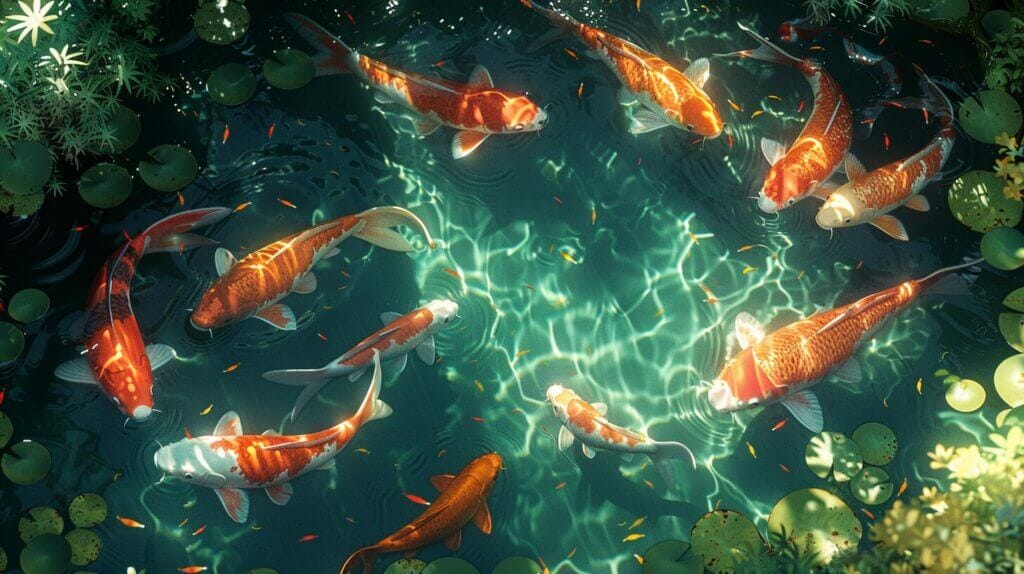
Observing Koi fish’s eating habits, we notice their inclination towards consuming algae as a significant part of their diet.
While algae consumption is a normal part of a Koi’s diet, maintaining a balanced intake is crucial. Overfeeding can lead to excessive algae growth in the pond, affecting water quality and potentially harming the fish.
Supplementing their diet with high-quality commercial fish food provides essential nutrients. Maintaining a proper balance in their diet allows Koi fish to thrive and contribute to a well-functioning ecosystem within the pond.
The Role of Algae in a Koi Pond or Tank Ecosystem
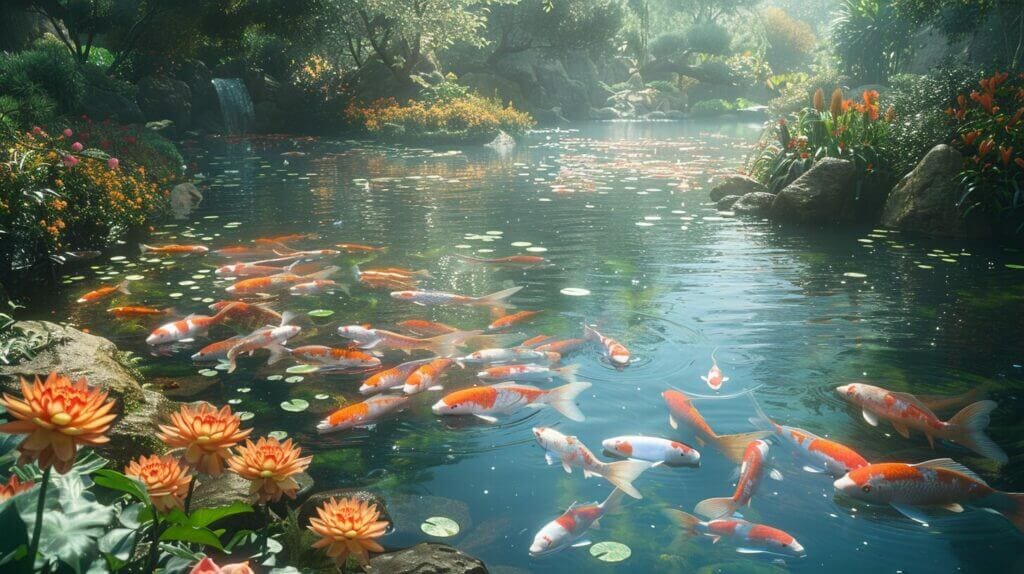
Algae play an important role in maintaining the balance of a koi pond ecosystem. They provide oxygen, food, and shelter for beneficial microorganisms that contribute to water quality. However, excessive algae growth can harm the pond and its inhabitants.
To maintain a healthy ecosystem, manage algae growth effectively. Methods include manual removal, introducing algae-eating fish, or using natural solutions like barley straw or beneficial bacteria.
By maintaining a balance in algae growth, pond owners can create a thriving ecosystem that supports the health and vitality of their Koi fish.
Natural Methods to Clear Pond Algae and Maintain a Healthy Diet for Koi Fish
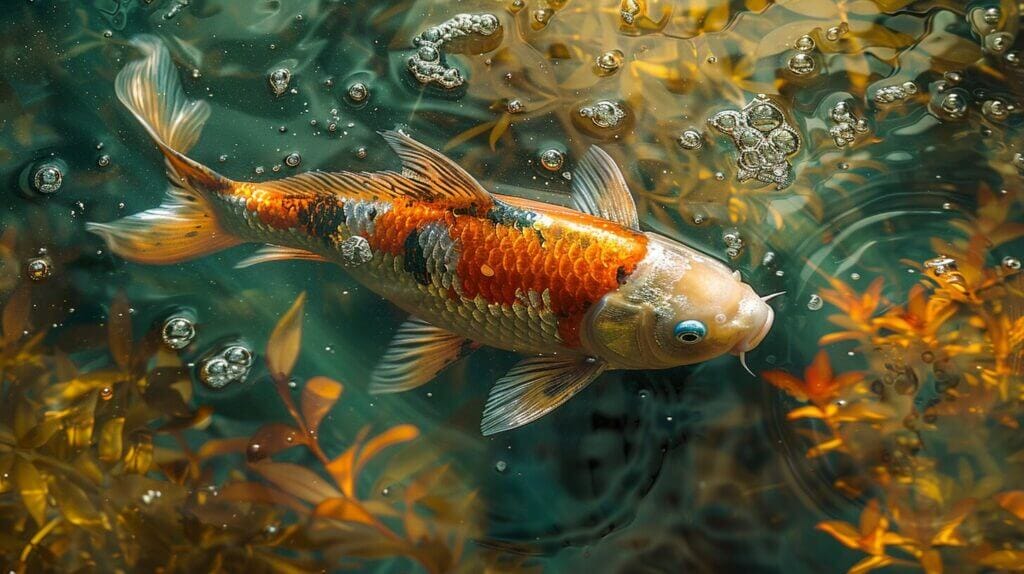
To maintain peak health for Koi fish and manage pond algae, utilize natural methods. Introducing algae-eating snails or certain species of carp helps control algae levels.
Pond plants compete with algae for nutrients and provide shade, which hinders algae growth. Adjusting the feeding habits of Koi fish impacts algae levels; overfeeding contributes to excess nutrients that fuel algae growth.
Feeding Koi fish smaller portions more frequently and ensuring they consume all the food within a few minutes better regulates nutrient levels in the water. Incorporating zooplankton into the pond also helps control algae, as they feed on algae and contribute to the overall balance of the ecosystem.
Conclusion
In summary, koi fish do eat algae as part of their natural diet, providing essential nutrients for their growth and overall health. Monitoring their feeding habits and maintaining a balanced diet of commercial fish food is important to guarantee their well-being.
Algae also play a critical role in maintaining water quality in ponds by controlling excess nutrients. By understanding their diet and providing proper care, koi fish can thrive in a healthy pond ecosystem.
Frequently Asked Questions
Do koi eat algae?
Yes, koi will eat string algae as part of their diet.
What type of algae do koi eat?
Koi will eat string algae, which is a common type of algae found in ponds.
How do koi contribute to algae growth?
Koi can contribute to algae growth if there are too many fish in the pond, leading to poor water quality and nutrient build-up that promote algae growth.
Why is it important to remove string algae from a pond?
String algae can be harmful to the pond ecosystem as it can overtake plants and reduce available oxygen in the water, leading to poor water quality that can harm the koi and other pond mates.
How can koi keep algae under control in a pond?
Koi can help eliminate algae by eating excess algae as a snack, thus reducing the chances of an algae bloom in the pond.

